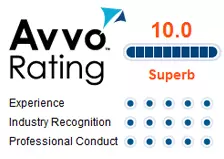Around the Country, blood testing is becoming more and more common as a tool in the prosecution of drunk drivers. In Michigan alone more than ten thousand blood samples are tested for alcohol each year.
In nearly every case where a death is involved, the alleged drunk driver is forced to give a blood sample. Blood tests are thought by most to be more accurate than breath tests, but blood testing is also more complicated.
Because of its complexity, few lawyers really understand how to properly defend a case involving blood evidence. While these lawyers may consult articles or books to learn about how to defend a blood test in court, they may also wish to consult with other lawyers. In some instances they may ask their client to retain another lawyer – a “blood expert lawyer” – to help at trial.
The question is whether or not such arrangements are beneficial to the client. The first thing to consider in a multiple attorney situation is that in order for the client to be best served it is important for the roles of the various attorneys to be clearly and well-defined. Without clear role definition it is difficult to assure that the client will obtain the best possible defense. Yet, as simple as this may sound in theory; in practice it almost never happens.
Perhaps the biggest problem with clear role definition occurs due to the lawyer’s egos. There is no question that clear role definition requires that one lawyer be the leader and assign various tasks to the other lawyer or lawyers involved. In a drunk driving case with blood evidence who will be leader? Will it be the lawyer with or without the specialized knowledge about blood testing?
In theory the answer is simple. The lawyer with the specialized knowledge about blood testing in drunk driving cases will just cross-examine the state’s toxicology expert. Sounds good, but here is how this works out in practice.
First a decision must be made regarding the use of a defense expert at trial. If there is no defense expert then it is unlikely that either of the state’s toxicologists in Michigan (Dr. Felix Adatsi or Dr. Michelle Glinn) would testify. If this happens there will be no state toxicologist to cross-examine.
But who will make the decision about whether or not to call a defense expert? Presumably that decision would be made by the lawyer with the expertise in blood testing. Now it is clear that a major decision as part of the trial preparation must be performed by the blood expert lawyer.
If there is no defense expert, and therefore no state toxicologist, what then would be the blood expert lawyer’s role? Even post Melendez-Diaz the foundation for the blood in Michigan will likely require only the testimony of the “forensic scientist” who tested the blood, the person who drew the blood and the police officer who witnessed it. The blood expert lawyer should probably assist with these witnesses as well. Certainly it seems that these witnesses are closely related to any defense that might be raised with or through any toxicologist you call or the state calls.
According to the rules the lawyers may not split the cross-exam of the arresting police officer involved with the blood draw. So, another question is whether or not the blood expert lawyer will only assist in the preparation for this witness or would he actually perform the entire cross-examination?
Taking all of this into consideration it seems clear that at a minimum it seems clear that the blood expert lawyer would need to cross-examine two and perhaps three witnesses. In many drunk driving trials these are the only three witnesses who will testify. Thus, we now have the blood expert lawyer involved with the cross-examination of all of the witnesses who will testify – not just one.
A separate but closely related issue is how, if at all, the blood expert lawyer would be involved in voir dire, opening statements or closing arguments. Since any issue the drunk driving or OWI Causing Death client may have related to the blood would need to be addressed at all three trial stages this means that the blood expert lawyer would have to have at least some participation in these parts of the trial and trial preparation as well.
Of course it is also important to understand how any blood test defense relates to the overall theme of the client’s case. In order for the blood expert lawyer to make this determination he would need to work with the client directly to better understand his story and to help make the determination as to whether or not the client should take the stand at trial. Consequently, the blood expert lawyer who was only supposed to help out with one witness is now the main lawyer in the defense of the intoxication evidence.
Aside from these practical considerations, there is the closely related issue of the fee. Since a coordinated, thorough and well-executed defense would require the blood expert lawyer to be involved in virtually every aspect of trial as well as trial preparation a proper fee would have to be essentially identical to what the blood expert lawyer would charge if he were handling the entire case without anyone’s assistance.
Presumably the lawyer who was originally handling the case and who asked the blood expert lawyer to be involved has already charged the client a fee, and especially with an OWI Causing Death case, probably a large fee. Considering this it is difficult to fathom how the blood expert lawyer can be adequately compensated without the client’s total fees being excessive and duplicative. This is not only unfair to the client but is also a violation of attorney ethics.
If you are facing a drunk driving charge involving a blood test you should make sure your lawyer has enough knowledge and confidence about the testing protocol to establish reasonable doubt. This is far preferable to the situation where your lawyer retains another lawyer to help with this blood evidence.
Because of his expertise in blood intoxication evidence in drunk driving cases Patrick T. Barone is often asked to assist other lawyers with their OWI Causing Death cases. For the reasons stated above, Mr. Barone nearly always declines to offer such assistance. It is nearly impossible.
To discuss your drunk driving case involving blood evidence, contact the Barone Defense Firm today.









